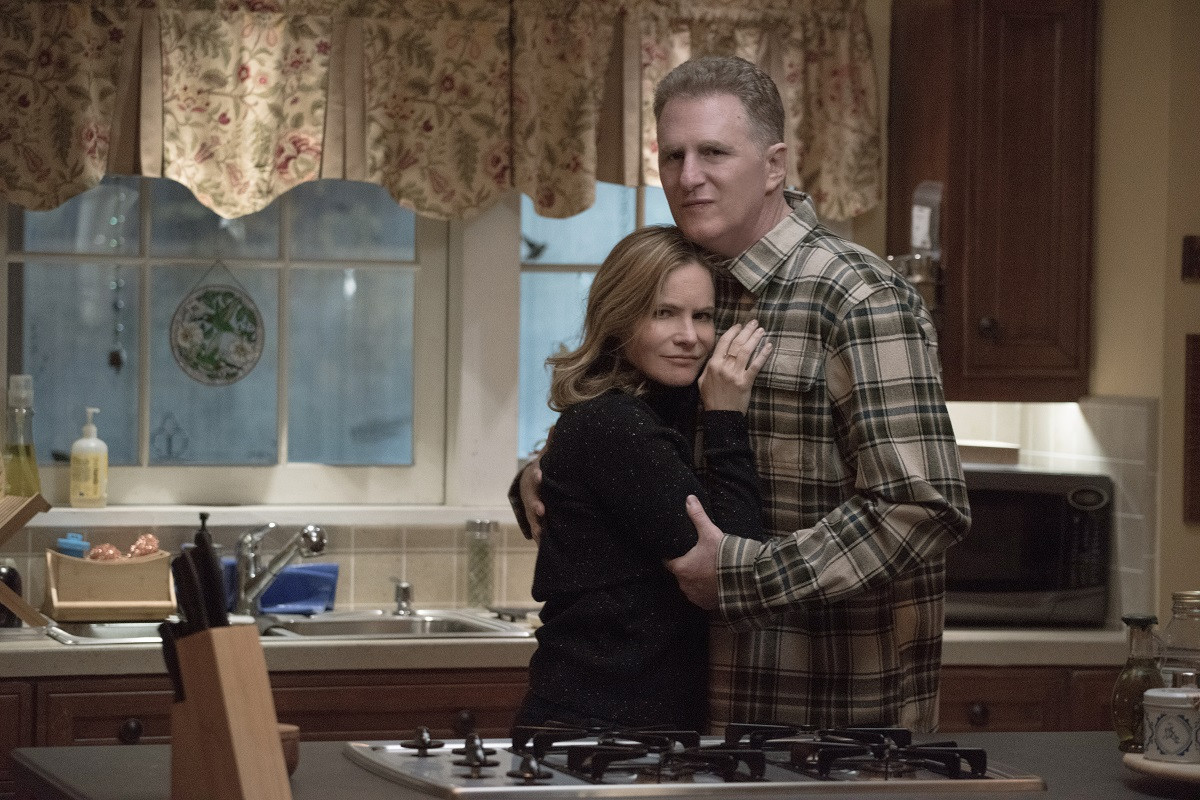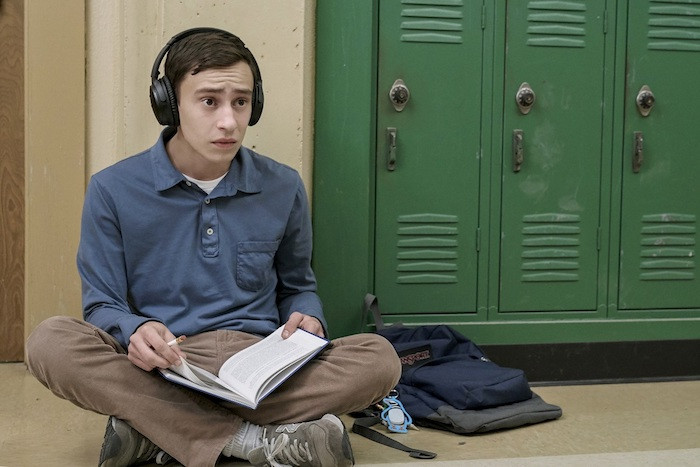Netflix’s “Atypical” initially presents itself as a standard dramedy, perhaps even leaning into familiar tropes a bit too heavily. However, as the series progresses, it significantly surpasses initial impressions, blossoming into a genuinely compelling family story. The key to its success? The Atypical Family Cast, a perfectly assembled ensemble that breathes life into characters, making them feel real, relatable, and utterly worth investing in.
 Sam in therapy with Julia
Sam in therapy with Julia
At its heart, “Atypical” revolves around Sam (Keir Gilchrist), a teenager on the autism spectrum. While the early episodes dedicate considerable time to explaining Sam’s condition, often through therapy sessions with his coach Julia (Amy Okuda), the narrative soon expands to encompass the entire Gardner family. This includes his mother Elsa (Jennifer Jason Leigh), his father Doug (Michael Rapaport), and his sister Casey (Brigette Lundy-Paine), each grappling with their own personal journeys alongside Sam’s. The strength of “Atypical” lies in how these characters are developed and portrayed by a talented cast.
The Core Four: Performances that Resonate
The central quartet of actors – Gilchrist, Leigh, Rapaport, and Lundy-Paine – are the bedrock of “Atypical”‘s appeal. Keir Gilchrist delivers a nuanced and authentic performance as Sam. He avoids caricature, portraying Sam with sensitivity and depth. Gilchrist allows viewers to see beyond Sam’s autism, highlighting his humor, his desires, and his unique perspective on the world. His portrayal is both educational and deeply human, making Sam a character you root for from the outset.
 The Gardner family
The Gardner family
Jennifer Jason Leigh is equally captivating as Elsa, Sam’s overprotective mother. Initially, Elsa’s helicopter parenting might seem overbearing, but Leigh skillfully reveals the anxieties and insecurities driving her actions. As Sam gains independence, Elsa confronts her own identity crisis, and Leigh portrays this vulnerability with remarkable depth. She navigates Elsa’s flaws and complexities, making her a sympathetic and multi-dimensional character.
Michael Rapaport brings a quiet strength to the role of Doug, Sam’s father. Doug’s journey is one of growth and reconciliation. Initially distant and unsure how to connect with Sam, Doug gradually learns to understand and support his son. Rapaport effectively conveys Doug’s emotional evolution, making his transformation believable and touching. He showcases the subtle nuances of a father trying to make amends and build a stronger bond with his son.
Brigette Lundy-Paine shines as Casey, Sam’s fiercely independent and protective sister. Casey is not just a supporting character; she has her own compelling storylines, dealing with teenage relationships, athletic pressures, and her evolving understanding of her family. Lundy-Paine imbues Casey with a blend of toughness and vulnerability, making her a relatable and dynamic presence. Casey’s unwavering support for Sam, even amidst her own challenges, is a crucial emotional anchor of the show.
Supporting Roles that Enrich the Narrative
Beyond the central family, “Atypical” is populated with well-developed supporting characters, further enhancing the show’s richness. Amy Okuda as Julia, Sam’s therapist, provides a grounded and empathetic presence. Her sessions with Sam are not just exposition dumps but genuine moments of connection and guidance. Nik Dodani as Zahid, Sam’s best friend and coworker, offers comic relief and unwavering loyalty. His friendship with Sam is one of the most heartwarming aspects of the series.
The Relatability Factor: Why the Cast Connects
What makes the “atypical family cast” so effective is their relatability. Despite the unique circumstances of Sam’s autism, the Gardner family faces universal issues: marital struggles, parental anxieties, sibling rivalry, and the challenges of growing up. The cast portrays these experiences with authenticity and heart, allowing viewers to see pieces of their own families reflected on screen. “Atypical” reminds us that every family is, in its own way, atypical, and it’s these differences and imperfections that make family bonds so powerful and enduring. The performances in “Atypical” are not just about acting; they are about creating a family that feels genuine, flawed, and ultimately, deeply loving.

